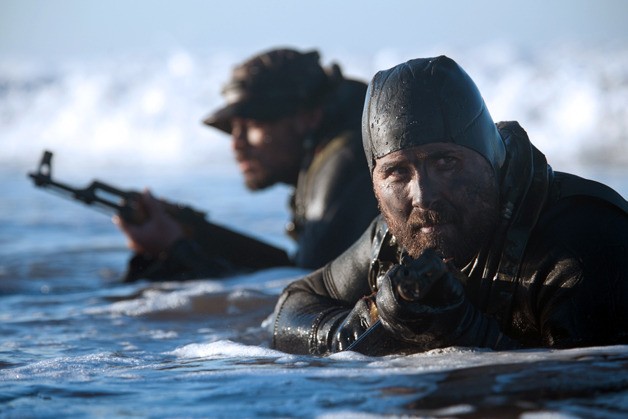The Navy is considering using sites around the Puget Sound, including Whidbey Island, to train special forces SEAL teams.
Nearly 70 sites — most of them public parks and marinas — are listed as potential training zones in an unclassified document prepared by Naval Special Warfare Group Three.
On the list are Deception Pass State Park, Joseph Whidbey State Park, Fort Ebey State Park, Fort Casey State Park, South Whidbey State Park and portions of the Oak Harbor waterfront including the Seaplane Base, the marina and the beach at Windjammer Park.
All the training is described by the Navy as “non-invasive,” meaning no live fire, no digging, no cutting of vegetation, and no trace the SEAL teams were present.
SEAL teams — short for Sea, Air and Land — have conducted this type of training in the Northwest for more than 30 years, said Lt. Cmdr. Mark Walton, a Navy media officer at Naval Base Coronado, which is home to several SEAL teams and other parts of the Navy‘s special operations forces.
“There’s been training for SEALs there for awhile,” he said. “They have a great relationship with local authorities. All the training we do is always done with care and consideration with careful review of all the impacts and compliance with the law.”
The Northwest is an appealing training ground for SEAL teams because of its varied coastline and ready access to “specialized Navy equipment” that allows for quick response if something goes wrong, he said.
The document reflects the beginning of a site evaluation process, he said. It might be months before special forces teams train at any of the locations listed. Just because a site is listed, doesn’t mean the Navy will use it.
The document outlines various training exercises.
In one, teams use “simulated weapons” that fire off paintballs. In another, SEAL teams exit a watercraft, swim to shore, cross a beach and then hunker down hidden above the tideline for a few hours.
Most of the sites would be used two to 72 hours, up to eight times a year. Other personnel would cordon off the area, according to the document.
The Navy coordinates with local officials, Walton said.
Before the Navy uses any of the proposed sites on Whidbey, they need to complete the National Environmental Policy Act process and that includes public notification, said Kristin Ching, a spokeswoman for Commander Navy Region Northwest.
However, the Navy is already conducting this type of training at other Pacific Northwest sites, and since they were already approved, the public is not notified before training exercises are conducted, she said.
Navy special forces considered doing some training at Deception Pass State Park several years ago, said Jack Hartt, park manager. That idea was nixed because the Navy wanted to use helicopters, and parks officials thought it would be too big of an impact to the public.
“We talked about it and they went elsewhere,” he said.
The Navy must obtain a “right of entry” permit to train in Washington State Parks, said Virginia Painter, spokeswoman for state parks.
The Navy does have such permits active now but none are for Whidbey Island. Those parks are Fort Flagler, Mystery Bay, Scenic Beach, Illahee and Blake Island.
Training has occurred at state parks in previous years, she said.
“(The training) happens at night. They land in a small boat and in some cases another crew picks them up and the boat and they take off again,” she said.
“It’s very low impact.”
The documents were obtained by the website Truthout, which has been critical of a proposed Navy plan to introduce electromagnetic transmitters to its electronic warfare training on the Olympic Peninsula.
Walton, the Navy spokesman, said he doesn’t know how Truthout obtained the document.
Citizens of Ebey’s Reserve, the grassroots organization that opposes training exercises with Navy jets, also takes a dim view of the activities outlined in the document.
“The Navy has either avoided or simply neglected to engage the public as required and presumes instead a position of entitlement,” said Cate Andrews, a spokeswoman for CORE. “We need to hold them accountable as required by law for their imposition on us and our precious Pacific Northwest.”
She pointed to the Olympic Peninsula, where some people felt blindsided by the proposed Navy plan. Most people learned about it after someone spotted a notice at the Forks post office and asked the local newspaper to investigate.
“This seems like more of the same,” she said.


